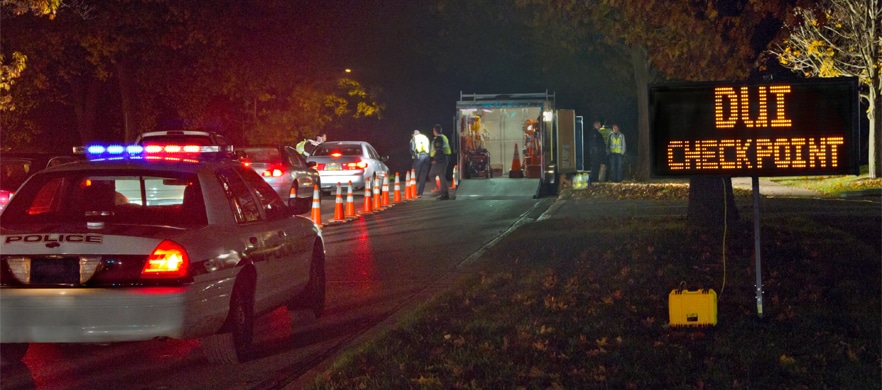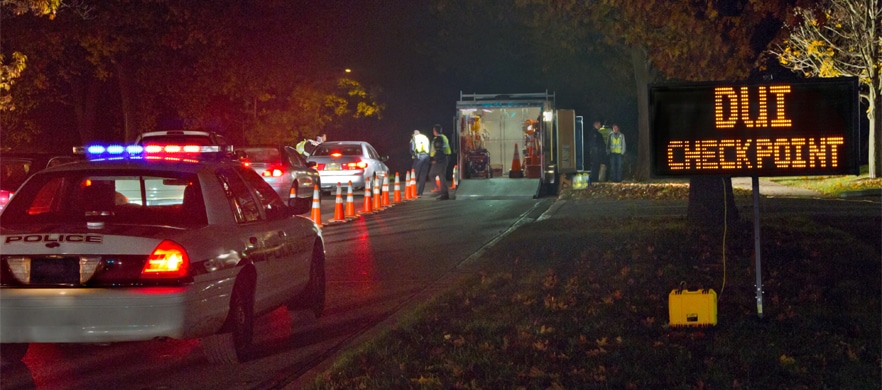“Our carceral state banishes American citizens to a gray wasteland far beyond the promises and protections the government grants its other citizens… When the doors finally close and one finds oneself facing banishment to the carceral state—the years, the walls, the rules, the guards, the inmates…the incarcerated begins to adjust to the fact that he or she is, indeed, a prisoner. New social ties are cultivated. New rules must be understood.”—Ta-Nehisi Coates, The Atlantic
In a carceral state—a.k.a. a prison state or a police state—there is no Fourth Amendment to protect you from the overreaches, abuses, searches and probing eyes of government overlords.
In a carceral state, there is no difference between the treatment meted out to a law-abiding citizen and a convicted felon: both are equally suspect and treated as criminals, without any of the special rights and privileges reserved for the governing elite.
In a carceral state, there are only two kinds of people: the prisoners and the prison guards.
With every new law enacted by federal and state legislatures, every new ruling handed down by government courts, and every new military weapon, invasive tactic and egregious protocol employed by government agents, “we the people”—the prisoners of the American police state—are being pushed that much further into a corner, our backs against the prison wall.
This concept of a carceral state in which we possess no rights except for that which the government grants on an as-needed basis is the only way I can begin to comprehend, let alone articulate, the irrational, surreal, topsy-turvy, through-the-looking-glass state of affairs that is being imposed upon us in America today.
As I point out in my book Battlefield America: The War on the American People, we who pretend we are free are no different from those who spend their lives behind bars.
Indeed, we are experiencing much the same phenomenon that journalist Ta-Nehisi Coates ascribes to those who are banished to a “gray wasteland far beyond the promises and protections the government grants its other citizens” : a sickening feeling, a desire to sleep, hopelessness, shame, rage, disbelief, clinginess to the past and that which is familiar, and then eventually resignation and acceptance of our new “normal.”
All that we are experiencing—the sense of dread at what is coming down the pike, the desperation, the apathy about government corruption, the deeply divided partisanship, the carnivalesque political spectacles, the public displays of violence, the nostalgia for the past—are part of the dying refrain of an America that is fading fast.
No longer must the government obey the law.
Likewise, “we the people” are no longer shielded by the rule of law.
While the First Amendment—which gives us a voice—is being muzzled, the Fourth Amendment—which protects us from being bullied, badgered, beaten, broken and spied on by government agents—is being disemboweled.
For instance, in a recent 5-3 ruling in Utah v. Strieff, the US Supreme Court opened the door for police to stop, arrest and search citizens without reasonable suspicion or probable cause, effectively giving police a green light to embark on a fishing expedition of one’s person and property, rendering Americans completely vulnerable to the whims of any cop on the beat.
In a blistering dissent, Justice Sonia Sotomayor blasted the court: “This case allows the police to stop you on the street, demand your identification, and check it for outstanding traffic warrants—even if you are doing nothing wrong… So long as the target is one of the many millions of people in this country with an outstanding arrest warrant, anything the officer finds in a search is fair game for use in a criminal prosecution. The officer’s incentive to violate the Constitution thus increases…”
Just consider some of the many other ways in which the Fourth Amendment—which ensures that the government can’t harass you, let alone even investigate you, without probable cause—has been weakened and undermined by the courts, the legislatures and various government agencies and operatives.
Americans have no protection against mandatory breathalyzer tests at a police checkpoint, although mandatory blood draws violate the Fourth Amendment.
Ignorance of the law is defensible if you work for the government.
Police officers can use lethal force in car chases without fear of lawsuits.
Police can perform a “no-knock” raid as long as they have a reasonable suspicion that knocking and announcing their presence would be dangerous or futile.
Police can carry out warrantless searches on homes, cars, persons and property based on a “reasonable” concern that a suspect (or occupant) might be attempting to flee or destroy evidence.
Police can forcibly take your DNA, whether or not you’ve been convicted of a crime.
Police can subject Americans to virtual strip searches, no matter the “offense.”
Police have free reign to use drug-sniffing dogs as “search warrants on leashes.”
Police can conduct sobriety and “information-seeking” checkpoints.
Police officers are free to board a bus, question passengers, and ask for consent to search without notifying them of their right to refuse.
Police can arrest you for minor criminal offenses, such as a misdemeanor seatbelt violation, punishable only by a fine.
Refusing to answer when a policeman asks “What’s your name?” can rightfully be considered a crime. No longer do Americans, even those not charged with any crime, have the right to remain altogether silent when stopped and questioned by a police officer.
Police may stop any vehicle as long as they have reasonable cause to believe that a traffic violation occurred. A vehicle can be stopped even if the driver has not committed a traffic offense.
Police officers can stop cars based only on “anonymous” tips. Police can also pull you over if you are driving too carefully, with a rigid posture, taking a scenic route, and have acne.
What many Americans fail to understand is the devastating amount of damage that can be done to one’s freedoms long before a case ever makes its way to court by government agents who are violating the Fourth Amendment at every turn. This is how freedoms, long undermined, can give way to tyranny through constant erosion and become part of the fabric of the police state through constant use.
Phone and email surveillance, databases for dissidents, threat assessments, terror watch lists, militarized police, SWAT team raids, security checkpoints, lockdowns, roadside strip searches: there was a time when any one of these encroachments on our Fourth Amendment rights would have roused the public to outrage. Today, such violations are shrugged off matter-of-factly by Americans who have been assiduously groomed to accept the intrusions of the police state into their private lives.
So when you hear about the FBI hacking into Americans’ computers without a warrant with the blessing of the courts, or states assembling and making public terror watch lists containing the names of those who are merely deemed suspicious, or the police knocking on the doors of activists in advance of political gatherings to ascertain their plans for future protests, or administrative government agencies (such as the FDA, Small Business Administration, Smithsonian, Social Security, National Oceanic and Atmospheric Administration, US Mint, and Department of Education) spending millions on guns and ammunition, don’t just matter-of-factly file it away in that part of your brain reserved for things you may not like but over which you have no control.
It’s true that there may be little the average person can do to push back against the police state on a national level, but there remains some hope at the local level as long as we recognize that the only way the police state can truly acquire and retain power is if we relinquish it through our negligence, complacence and ignorance.
Unfortunately, we have been utterly brainwashed into believing the government’s propaganda and lies. Americans actually celebrate with perfect sincerity the anniversary of our independence from Great Britain without ever owning up to the fact that we are as oppressed now—more so, perhaps, thanks to advances in technology—than we ever were when Redcoats stormed through doorways and subjected colonists to the vagaries of a police state.
You see, by gradually whittling away at our freedoms—free speech, assembly, due process, privacy, etc.—the government has, in effect, liberated itself from its contractual agreement to respect our constitutional rights while resetting the calendar back to a time when we had no Bill of Rights to protect us from the long arm of the government.
Aided and abetted by the legislatures, the courts and Corporate America, the government has been busily rewriting the contract (a.k.a. the Constitution) that establishes the citizenry as the masters and agents of the government as the servants. We are now only as good as we are useful, and our usefulness is calculated on an economic scale by how much we are worth—in terms of profit and resale value—to our “owners.”
Under the new terms of this one-sided agreement, the government and its many operatives have all the privileges and rights and “we the prisoners” have none.
Reprinted with permission from the Rutherford Institute.


